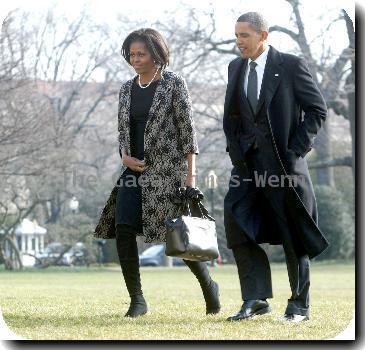Obama struggles to show he’s mad about the BP oil spill, but he’s drawing lots of skepticism
By Tom Raum, APTuesday, June 8, 2010
Obama’s getting really, really mad _ or is he?
WASHINGTON — First he was going to make BP pay for the Gulf oil mess. Then he declared himself in charge. Now he’s trying to find out “whose ass to kick” and making clear he’d fire BP’s chief if only he could.
President Barack Obama is talking ever tougher as the Gulf oil spill crisis drags on, the public’s patience wears thin and the peril to his presidency increases. With pressure building on Obama to fix the crisis, the White House said he’ll be heading back to the scene, spending next Monday and Tuesday inspecting oil damage in Mississippi, Alabama and Florida.
Obama’s salty comments broadcast on NBC’s “Today” show on Tuesday raised questions about his escalating anger and angst — are they real or calculated for political effect?
Long viewed as a political positive, Obama’s unflappable temperament may be working against him now. Despite his claims of being on top of things from Day One, Obama has come under fire even within his own party, accused of being slow to recognize the political danger of the spill and for appearing somewhat detached.
“I think it’s hard for him to get angry. His anger obviously is motivated by the fact that there’s increasing anger in the country,” said Thomas E. Cronin, a political scientist at Colorado College and co-author of “The Paradoxes of the American Presidency,” a book that examines how difficult it is for presidents to live up to expectations.
“We want the president to be like us but to be better than us. So we hold the president to a higher standard,” said Cronin.
Obama’s dialing up his anger thermostat comes as a new Washington Post poll shows nearly half of those surveyed — 48 percent — now saying he does not understand the problems of people like them, the highest of his presidency.
And a new Pew Research Center poll shows a sharp rise in the number of people who say Obama’s policies are making the economy worse rather than better.
“There are increasing doubts about what he’s doing,” said Pew pollster Andy Kohut. “And he’s got a world of troubles here, from BP to the economy to last week’s disappointing jobs report.”
After earlier suggesting repeatedly that cleaning up the spill was BP’s full responsibility, Obama said at a May 27 news conference that he accepted responsibility for saving the situation. He also assailed a “scandalously close relationship” between Big Oil and its government regulators.
He said his daughter Malia had asked him that morning: “Did you plug the hole yet, Daddy?”
A few days later, he called BP’s announcement of the failure of its “top kill” attempt to stop the leak “as enraging as it is heartbreaking.” Last Friday, on his third trip to the Gulf Coast since the April 20 rig explosion, Obama worked to channel public anger toward BP. “I don’t want them nickel-and-diming people down here,” he said.
Then, in an interview recorded Monday and broadcast Tuesday, Obama said, “I don’t sit around just talking to experts because this is a college seminar; we talk to these folks because they potentially have the best answers — so I know whose ass to kick.”
He also criticized BP CEO Tony Hayward for such insensitive remarks as “I want my life back,” and the Gulf is “a big ocean” so “the environmental impact of this disaster is likely to be very, very modest.”
“He wouldn’t be working for me after any of those statements,” Obama said.
As stock values for oil companies with ties to the Gulf tumbled in early trading Tuesday after Obama’s remarks, Oppenheimer & Co. energy analyst Fadel Gheit said the president had fanned speculation about potential liabilities of such companies.
“I thought the comment was both unfortunate and unpresidential,” Gheit said. “This is tea party territory.”
Most of them recovered later in the day, but BP shares closed down 5 percent.
Obama spokesman Robert Gibbs recently assured skeptical reporters that he’d personally seen the president express “rage” over the spill. When pressed for details, Gibbs spoke of Obama’s “clenched jaw” and an order at a staff meeting to “plug the damn hole.”
In a separate interview with The Associated Press, Gibbs said Obama does not intend to “get mad just to get mad,” that that wasn’t his style. Instead, Gibbs depicted Obama’s disposition as “reserved Midwestern,” calm in a crisis even when furious about the problem. “He got this from his grandmother,” Gibbs said.
Obama isn’t the first president or vice president to use locker room talk, and it always comes off as a little jarring. Vice President George H.W. Bush said after a 1984 vice presidential debate with Democrat Geraldine Ferraro, “We tried to kick a little ass last night.” As president six years later, he said of Iraqi leader Saddam Hussein: “If we get into an armed situation, he’s going to get his ass kicked.”
“If Kennedy runs, I’ll whip his ass,” President Jimmy Carter said at a dinner with congressman in 1980, referring to Sen. Edward M. Kennedy’s preparations for a Democratic challenge. President Ronald Reagan once told his staff, “I’ve had it up to my keister with these leaks.”
GOP presidential nominee and then Texas Gov. George W. Bush at a 2000 Labor Day rally in Illinois told running mate Dick Cheney that a certain New York Times reporter was “a major league a——” and Cheney responded, “Oh yeah, he is, big time.”
The men involved in those incidents generally thought their comments were private. Obama clearly knew he was talking to the world.
Wayne Fields, a professor at Washington University in St. Louis who studies presidential rhetoric, said Obama’s comments “feel out of character” and in response to “lots of pressure right now to be a part of the rhetoric of plain speaking and anger — which isn’t his style.”
Part of Obama’s attraction, Fields said, “was that he wasn’t going to be swept away by forces beyond his control. His remarks on the “Today” show sounded a note of frustration. I think the ‘clenched jaw’ is a much better approach for him to take.”
Associated Press writers Ben Feller in Washington and Mark Williams in Columbus, Ohio, contributed to this report.
Tags: Accidents, Barack Obama, Environmental Concerns, North America, Oil spill, United States, Washington





